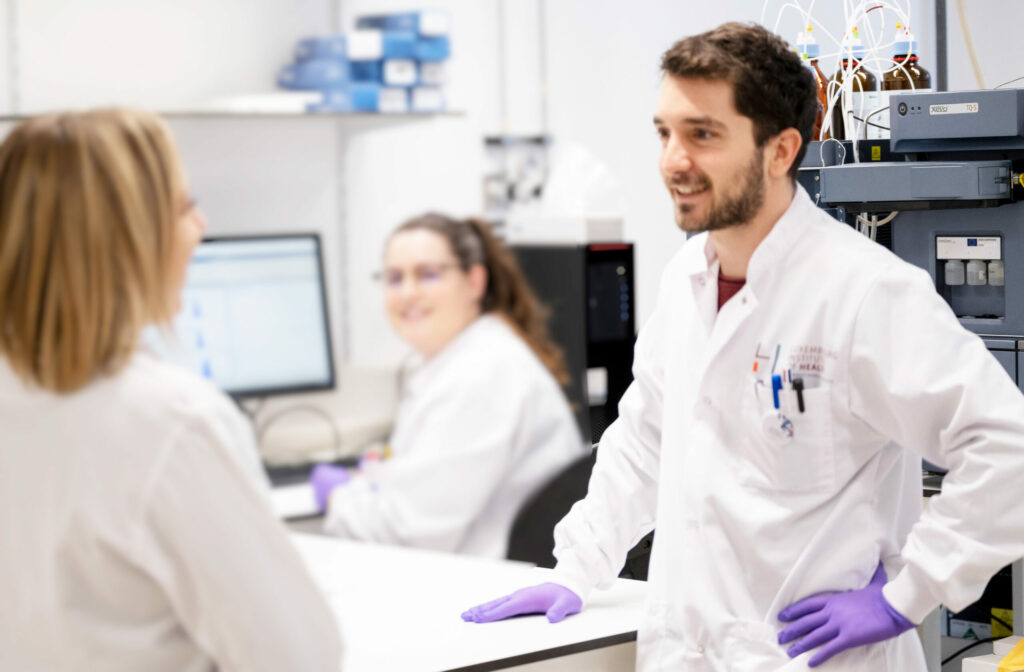
EXPERIMENTAL AND MOLECULAR IMMUNOLOGY
The Experimental and Molecular Immunology laboratory focuses on the control of inflammation, autoimmune responses, and cancer by metabolic adaptation of immune cells.
activities
The Brenner laboratory is strongly dedicated to cutting-edge research. As such, our group combines metabolic, molecular, cellular, and physiological approaches to unravel new ways to control immunity. Our vision is to develop new concepts for personalised medicine to mitigate inflammatory diseases through a mechanism-centered approach. As such, our group promotes a concept in which diseases are not treated based on symptoms, but on their mechanistic and individual cause.
The immune system is crucial for a healthy body function and protects us from severe infection. However, dysregulated immunity can cause inflammation, autoimmune diseases and cancer. Specifically, the control of immune cell metabolism has emerged as a powerful way to regulate immunity. The Brenner laboratory investigates the metabolic regulation of the immune system and how this ensures a coordinated immune response and homeostasis. We seek to define the molecular, metabolic and cellular processes of inflammation and integrate in vitro with in vivo studies to gain a comprehensive picture of inflammation and cancer. A key aspect and focus of all our projects is the identification of novel metabolic checkpoints that influence the regulation of the immune system. One of these key circuits is the regulation of redox metabolism and reactive oxygen species (ROS) in immune cells. We investigate physiological consequences of ROS accumulation and their impact on immune cell function in health and disease.

Brenner
Projects & clinical trials
Featured team members
Scientific publications
-
Myoglobin expression improves T-cell metabolism and antitumor effector function – 03/06/2025
-
Bacteria-derived nutrient recycling – 06/05/2025
-
Blocking lactate – 19/03/2025
-
Navigating the metabolic landscape of regulatory T cells – 01/02/2025
-
CyCadas – 07/10/2024
-
A Th17 cell-intrinsic glutathione/mitochondrial-IL-22 axis protects against intestinal inflammation – 01/01/2024
-
Glutathione synthesis in the mouse liver supports lipid abundance through NRF2 repression – 21/07/2024
-
K63-linked Ubiquitination in the Innate Immune Response – 14/05/2024
-
Adipose Treg cells in charge of metabolism – 01/03/2024
-
Multiomics approaches disclose very-early molecular and cellular switches during insect-venom allergen-specific immunotherapy – 22/02/2024
Related News

Job vacancies
There are no jobs matching this page at the moment. You can view all jobs via the button below.





















